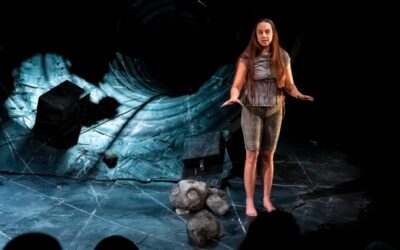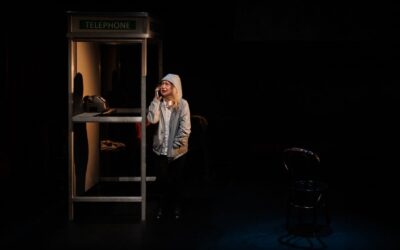By Karyn Hodgkinson
I wanted to see this show because of my fascination with Mozart. Mozart is famous for mainly the quality but also the quantity of his music, and for being a musical genius. He apparently enjoyed all kinds of humour, especially pranks and scatological humour or toilet humour, as revealed in his letters. The child in the man Mozart was alive and well, despite his preoccupation with very grown-up concerns such as losing four infant children and having to earn enough to support his family’s lifestyle.
Callum Straford sees a parallel between Mozart and Blink-182, a Californian pop-punk band formed in 1992. This band’s musical style ‘blends catchy pop melodies with fast-paced punk rock’. Their lyrics mainly focus on relationships, teen angst and maturity – or lack thereof. One of the band’s biggest singles, “What’s My Age?” specifically addresses the Peter Pan syndrome’- a metaphor, based on the concept of not growing up and being trapped in childhood. Blink-182’s popularity peaked at the turn of the millennium, when albums such as Take Off Your Pants and Jacket and Enema of the State sold millions of copies. Straford’s comment that Blink-182’s humour ‘makes 14-year-old boys look intelligent’, though tongue-in-cheek, resonates if you’re a teacher, as both Straford and this reviewer are.
Hence, because of their mutual penchant for childish toilet humour, Straford declares that Blink-182 is the 21st century’s version of Mozart – perhaps a long shot there. This notion underpins his many other musical contemplations, some of which are linked to his own life, others not.
The show begins with Straford entering the space dressed as Mozart. He ‘conducts’ the wonderful ‘Lacrimosa’ from Mozart’s Requiem k 626 – Mozart’s last composition, not completed due to his death. This piece recurs throughout the performance as Straford interweaves his other musical musings. We hear about his parents and are shown the unique hanky given to him by his mother specifically for this show. In fact we are told snippets about both parents and how Straford came to enjoy playing music. He plays multiple instruments in the show, including one instrument, I guarantee, you have never seen. Straford then tells us what he thinks about singing in an Australian accent, how he loves validation and the gym, what happened when he was in India and the comment made by a high school student about the similarity between Froot Loops and ‘butt holes’ – a reminder of the aforementioned low-brow humour attributed to both musical icons.
As well as being very funny, a highlight of the show is the audience participation sequences where individual audience members are invited to complete or mimic musical phrases, sounds or rhythms that he is making. Another highlight is his ‘foley artist on a true crime episode’, where Straford does all the music, sound effects and narration for a kind of radio play, that we can see. The show is enhanced by the venue’s naturally occurring set features: the drapes, the piano and the high-ceilinged architecture of the space, which are reminiscent of Mozart’s world.
The recorded music, voice and sound effects were of excellent quality. This was accompanied by dramatic red lighting every time Mozart’s Lacrimosa was heard.
Straford’s presentation is relaxed and unforced, pitched at just the right level. He has fun with his audience and his handling of props, instruments and wigs is seamless.
You don’t have to be a music buff to enjoy this. Straford’s unique, whacky brand of humour stays with you for quite a while afterwards. Treat yourself. You won’t be disappointed.





